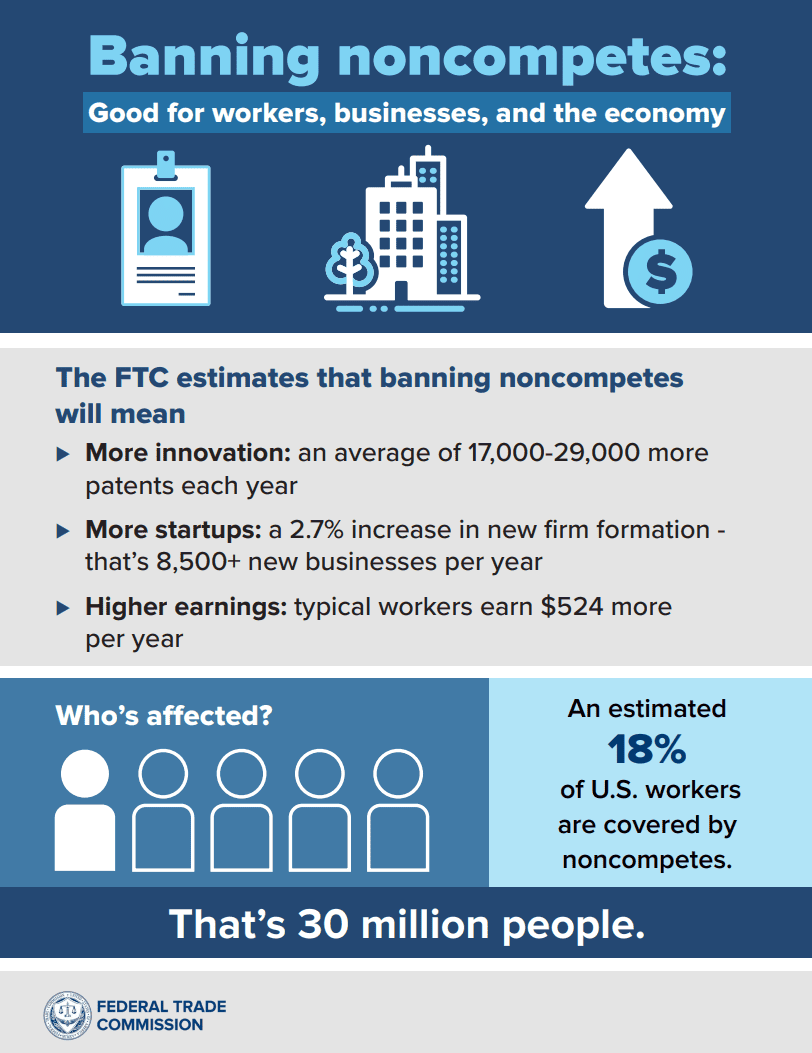A thriving company culture is the secret weapon to retain talent with the FTC's banning of non-compete clauses

The war for talent is heating up, and with the FTC's fresh banning of non-compete clauses, employers are losing a key tool in keeping their best people. This shift presents a golden opportunity to build a thriving work culture that organically attracts and retains top performers.
In the past, non-compete clauses could restrict employees from jumping ship to a competitor, even if they were unhappy. Now, talented individuals have the freedom to move on if they find a better offer. This means companies need to go beyond just offering a competitive salary and benefits package.
Here's why a strong company culture is the secret weapon in the new talent landscape:
- Employee Engagement: A positive culture fosters a sense of belonging and purpose, leading to higher engagement and productivity. Engaged employees are less likely to look elsewhere.
- Employer Branding: A company known for its great culture attracts top talent organically. People want to work in environments that value them and make them feel like they're part of something bigger.
- Innovation and Knowledge Sharing: A collaborative and supportive culture encourages employees to share ideas and take risks. This fuels innovation and keeps the company ahead of the curve.
- Reduced Turnover: Happy employees are less likely to leave. Investing in culture reduces costly recruitment and training expenses.
Building a Winning Culture
So, how do you cultivate a winning company culture? Here are a few tips:
- Focus on Values: Clearly define your company's core values and integrate them into everything you do, from hiring to performance reviews.
- Open Communication: Encourage open communication from the top down. Employees should feel comfortable voicing their opinions and concerns.
- Work-Life Balance: Promote healthy work-life balance by offering flexible work arrangements and recognizing the importance of personal time.
- Invest in Growth: Provide opportunities for professional development and learning. Employees want to feel their skills are valued and that they can grow within the company.
- Recognition and Rewards: Acknowledge and reward achievements, both big and small. Make employees feel valued for their contributions.
Building a great company culture takes time and effort, but the rewards are significant. In a world without non-compete clauses, a positive work environment is the key to attracting and retaining top talent, propelling your business to success.
Remember, company culture is no longer a perk – it's a necessity. Make it a priority, and watch your business thrive in the new era of talent.